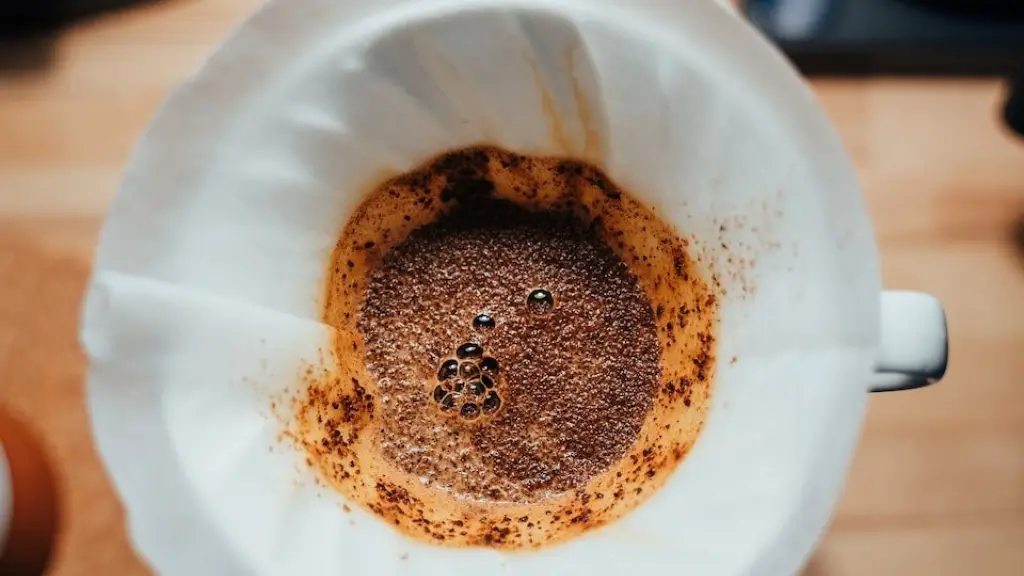It’s no secret that coffee has become an integral part of daily life for many people around the world, but for those living with diabetes, there may be questions about whether or not they can enjoy a cup of joe. The answer? It depends. Of course, a person’s individual health is always a key factor in making decisions about eating and drinking, and it’s important to note that if you’re living with diabetes, it’s always a good idea to double-check with your doctor when it comes to making dietary choices.
Coffee is a natural source of caffeine, which can bring many benefits to those concerned with either type 1 or type 2 diabetes. Caffeine can help temporarily boost energy and alertness, alleviate fatigue, and even help lower the risk of some types of cancer. However, diabetics should be aware that consuming caffeine can also have some undesired effects, such as interference with blood sugar control, increased heart rate, and dehydration.
It’s common for many to enjoy coffee with additives such as cream, sugar, and syrups. But for those with diabetes, this can be a little tricky. Cream, for example, contains fat and calories that can be difficult for a diabetic to manage due to the need for blood sugar stability. However, if a person is able to manage their blood sugar fluctuations, it is possible to enjoy coffee with cream.
In general, it’s best to opt for a lower fat, lower calorie option (skim milk instead of cream) when it comes to making coffee choices. But, if you do decide to enjoy a creamier version, choose a type of cream with fewer calories, such as half and half, soy milk, almond milk, or coconut milk. These alternatives may be more suitable for those with diabetes who want to manage their personal dietary habits and still enjoy a delicious cup of java.
The key to success in enjoying coffee with cream – or any food or beverage – for those with diabetes is careful portion management. When the recommended serving sizes for foods and drinks are taken into consideration, the risk for blood pressure fluctuation can be minimized. And it’s also important to be mindful of other ingredients such as sugar or artificial sweeteners, as these can also affect blood sugar levels.
Overall, diabetes does not necessarily have to put a complete stop to coffee-drinking. With the approval and guidance of a healthcare professional, it is possible for people living with diabetes to occasionally enjoy coffee with cream – just be aware of the potential effects that it can have on your blood sugar control. With careful management, those living with diabetes can enjoy coffee with cream and still maintain a healthy lifestyle.
Caffeine and Blood Sugar Regulation in Diabetics
One of the primary concerns for diabetics who enjoy coffee with cream is the potential for blood sugar control interference. It’s true that coffee contains caffeine, which studies have shown to have an effect on blood sugar regulation. Caffeine has been found to reduce fasting and post-meal blood sugar levels in type 2 diabetics by as much as 10%, providing a significant benefit for those living with diabetes.
Most of the research that has been conducted in this area shows that the amount of caffeine consumed and the timing of the coffees’s ingestion are key factors in the potential effect on blood sugar control. For example, research suggests that the greatest benefit of caffeine to glucose metabolism occurs in people who took half of the daily caffeine dose before lunch and the other half before dinner.
Coffee has also been found to increase fat metabolism, which could potentially be advantageous to those with diabetes because it helps the body burn fat in place of glucose. This could theoretically be beneficial for those with diabetes in terms of maximizing blood sugar levels, although more research is needed for a definitive conclusion.
In any case, it’s always a good idea to consult with a healthcare professional prior to consuming caffeine, as there are potential disadvantages one should be aware of in order to minimize risks.
Potential Adverse Effects of Caffeine for Diabetics
Although there are potential benefits of caffeine consumption for diabetics, there are also potential risks that those concerned with diabetes should be aware of. Caffeine consumption in general has been known to increase heart rate, and this is especially true if one is taking certain medications, such as insulin or diabetes tablets. An increased heart rate can lead to unwanted effects such as increased anxiety and/or feeling of restlessness.
Caffeine can also act as a diuretic and induce dehydration, which can make it more difficult to manage blood sugar levels. In addition to dehydration, the sugar content in some coffee drinks with cream may be considerable, thus making it difficult to maintain healthy blood sugar levels. Therefore, it’s important to be mindful of the type and amount of cream or sweetener used, and be mindful of the total amount of sugar in the drink.
Another factor to consider is that caffeine can have somewhat of an addictive effect on the body, meaning that one can develop both a physical and mental dependence on it. For those living with diabetes, too much caffeine consumption can lead to dependence and instability in blood sugar levels. This means that it’s important to take the necessary steps to ensure that the amount of caffeine consumed daily is kept at a healthy and safe level.
In general, research has found that moderate consumption of caffeinated beverages (200mg or 8-12 oz per day) can potentially offer some benefits to diabetics. Therefore, as long as one is aware of the potential risks and benefits and follows the necessary steps to ensure healthy consumption, moderate consumption of caffeinated beverages with cream may be a safe option.
Alternative Coffee Choices for Diabetics
Those dealing with diabetes who are looking for alternatives to coffee with cream can take advantage of decaf options. Decaffeinated coffee has the same health benefits as regular coffee, but without the potentially damaging effects of caffeine. Decaffeinated coffee can help reduce the risk of heart disease, stimulate weight loss, lower inflammation levels, and improve digestion.
Additionally, for those seeking lower-calorie alternatives to coffee with cream, an almond or soy milk coffee may be a better option. Both almond and soy milk are naturally low in calories and sugary additives, making them a healthier choice for diabetics. Plus, both almond and soy milk have a subtle and yummy flavor that complements coffee, making for a tasty and low-cal drink.
Of course, for those who do not wish to consume coffee in any form, there are still delicious and nutritious beverage choices available. For instance, a cup of herbal tea can be calming, while still being sugar- and caffeine-free. Also, sugar-free juices and smoothies are an excellent way to get important vitamins and minerals without the worry of blood sugar control issues.
Tools and Resources for Diabetics to Manage Coffee Intake
Staying on top of one’s personal health and nutrition is an important part of living with diabetes. There are a variety of tools and resources available that can help those with diabetes to manage their diet and track their coffee intake. For example, some fitness trackers and digital health apps can be used to log food and beverages consumed throughout the day, which is especially beneficial for those dealing with diabetes.
In addition, your healthcare team can advise you on a number of strategies to help manage your diabetes, such as monitoring carbohydrate intake, educating yourself on food labels, and making sure to get regular exercise. Being aware of these factors can be especially helpful in monitoring any potential adverse effects of cream in coffee, as well as managing caffeine dependence.
Overall, for those living with diabetes, it is possible to enjoy coffee with cream, provided it follows the guidance and advice of their healthcare professional. With proper management and lifestyle strategies in place, it is possible to maintain healthy blood sugar levels and still treat oneself to coffee with cream every once in a while.
Strategies for Those in Need of a Caffeine Boost
Some days, for those with diabetes, coffee can seem like a lifesaver when it comes to a quick and naturally-induced caffeine boost. But it’s important to look for alternatives methods of energy and alertness boosting, such as natural sources of caffeine, such as green tea, guarana, or cacao. Additionally, taking a brisk walk, engaging in some light exercise, or doing gentle stretching can help give the body a competitive edge.
Other herbs and essential oils may also provide that much needed pick-me-up without the sugar or hyperactivity usually associated with coffee. For instance, some herbs contain compounds such as Rhodiola rosea, ashwagandha, and ginseng, which can help to reduce cortisol levels and protect against stress. Additionally, certain essential oils can help energize the body, such as grapefruit, peppermint, and lemon.
Finally, for those who need an extra boost of energy, it can be beneficial to limit the consumption of refined carbohydrates and processed foods that have a high glycemic index. Limiting these kinds of foods can help to promote general wellbeing, reduce stress, boost energy, and support blood sugar regulation.
Managing Cravings and Hunger
Cravings are a real challenge for those with diabetes, and they can lead to uncontrolled consumption of unhealthy foods. If a person finds themselves struggling with their cravings, one potential solution would be to try to identify the underlying emotion causing the cravings. It’s important to manage stress levels and practice relaxation techniques to help manage these cravings. Additionally, getting enough sleep and regular physical activity can also help to decrease cravings.
Furthermore, it can be helpful to plan out meals and snacks ahead of time, as this can help to naturally suppress hunger and cravings. Eating small and frequent meals throughout the day can also be beneficial for managing cravings, as the body has limited time to become overwhelmed with hunger. Additionally, mindful eating, or focusing on the flavors, textures, and sensations of food, can help to limit overeating and further reduce cravings.
In general, implementing lifestyle strategies, managing meals and snacks, and practicing mindful eating can help to manage cravings and hunger, thus making it easier to manage coffee with cream for those living with diabetes.





